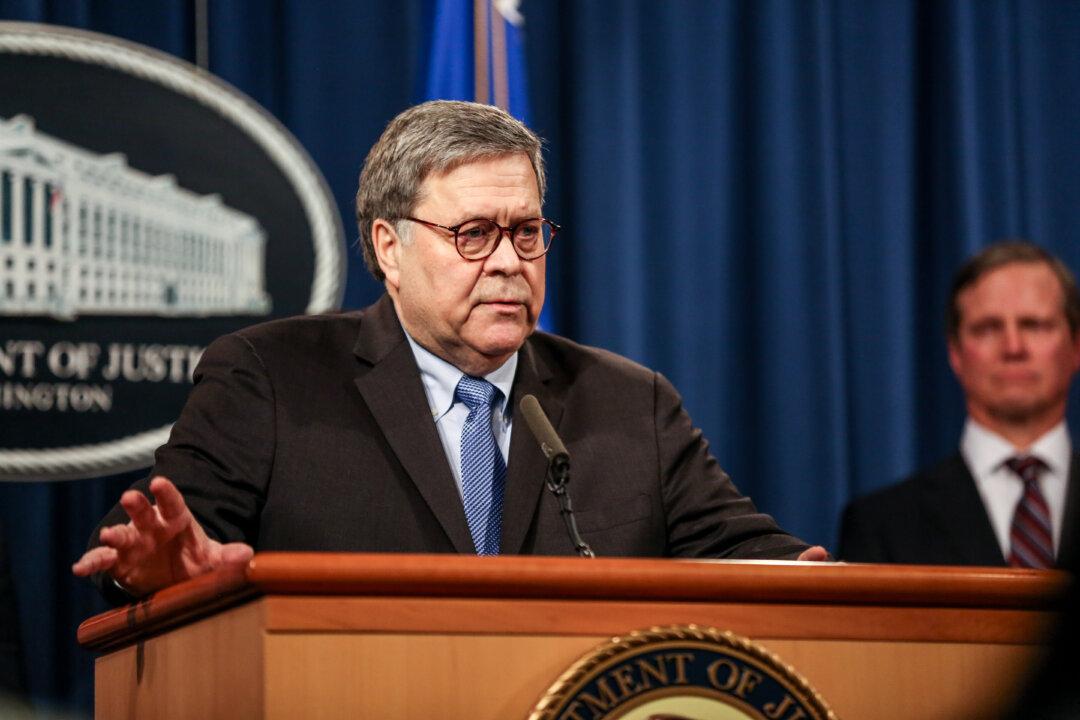Attorney General William Barr reiterated his concerns over district attorneys (DAs) who have vowed not to enforce categories of crime, saying that their policies are “pushing a number of America’s cities back toward a more dangerous past.”
This growing number of non-traditional DAs—many who are known as progressive prosecutors or social reform DAs—have been repeatedly criticized by senior leaders at the Justice Department (DOJ) along with many legal experts who are concerned that their policies promote a lack of respect for the rule of law, undermine the separation of powers, increase the risk to public safety, and threaten to undo the DOJ’s progress in reducing crime across the country.




